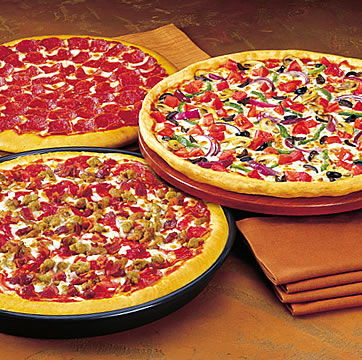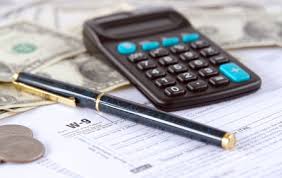
The Bush tax cuts are set to expire at the end of this year. This is Obama twisting his words to keep his promise of not raising anyone who makes less that $200K taxes one penny. Make no mistake, your taxes will go up at the end of this year barring someone taking proactive steps. With the current bunch of miscreants in Congress this will not happen. Bush had to put a “sunset clause” into the tax cut legislation to keep keep them from being permanent so the RINOs and Liberals would vote for them.
We are still working on the failed economic policies of the past. I have read lengthy history books. Some were published in the 80’s some in the 90’s and some were published in the 2000’s. In each case, if published prior to Obama’s reign, they have touted the proven failure and end of Fabian Socialism and Keynesian Economics.
Well then why in the blue hell are we still dealing with the mischief caused by these theories? Apparently this bogus ideology is nearly impossible to eradicate from our collective consciousness no matter how many times it fails.
Let’s deal with the notion that to increase revenue the thing to do is to increase taxes. I will even concede that this works to a point, which we have all become familiar with as the “tipping point”
It sounds very simple on the face of things, “Daddy Warbucks makes a lot of money, we want money, let’s take his.” Never mind that this is blatant robbery, another concept must be agreed upon, namely, that Incentive matters.
 There is a great pizza place not far from where I live. It is a woodfire pizza place run by a married couple. I do not know if any of you have ever contemplated cooking pizza in a woodfired oven but it is hot work. They do a great business, and I am sure they are making a comfortable living.
There is a great pizza place not far from where I live. It is a woodfire pizza place run by a married couple. I do not know if any of you have ever contemplated cooking pizza in a woodfired oven but it is hot work. They do a great business, and I am sure they are making a comfortable living. To keep the analogy simple let’s assume that every pizza they make costs them $5 dollars to make. They sell them for $10, the taxes are $2 and the profit is $3. Gino usually sells about 300 Pizzas a week.
| Flat 20% tax | ||||||
| Pizzas Sold | Price | Gross Income | expense | taxes | profit | Total |
| 300 | $ 10 | $ 3,000 | $ 1,500 | $ 600 | $ 900 | 3000 |
| $ 10 | $ - | $ - | $ - | $ - | 0 | |
| $ 10 | $ - | $ - | $ - | $ - | 0 | |
| 300 | $ 600 | $ 900 | ||||
Week 1 -For the first $1000 of Pizzas sold in a week the taxes are $2 and the
 profit is $3. Beginning with $1001 of Pizzas sold that week, the taxes are $2.50 and the Profit is $2.50. My Pizza Chef, Gino, is now working half for government but hey, it is still not a bad profit…so that week he sells 300 pizzas. Tax revenues go up but Gino’s profits drop off. The Central Planner, let’s call him Obummer, Obummer says wow that made us a lot of money this week, I think I can get even more by raising taxes.
profit is $3. Beginning with $1001 of Pizzas sold that week, the taxes are $2.50 and the Profit is $2.50. My Pizza Chef, Gino, is now working half for government but hey, it is still not a bad profit…so that week he sells 300 pizzas. Tax revenues go up but Gino’s profits drop off. The Central Planner, let’s call him Obummer, Obummer says wow that made us a lot of money this week, I think I can get even more by raising taxes. | Pizzas Sold | Price | Gross Income | expense | taxes | profit | Total |
| 100 | $ 10 | $ 1,000 | $ 500 | $ 200 | $ 300 | 1000 |
| 200 | $ 10 | $ 2,000 | $ 1,000 | $ 500 | $ 500 | 2000 |
| $ 10 | $ - | $ - | $ - | $ - | 0 | |
| 300 | $ 700 | $ 800 |
| Pizzas Sold | Price | Gross Income | expense | taxes | profit | Total |
| 100 | $ 10 | $ 1,000 | $ 500 | $ 200 | $ 300 | 1000 |
| 240 | $ 10 | $ 2,400 | $ 1,200 | $ 600 | $ 600 | 2400 |
| $ 10 | $ - | $ - | $ - | $ - | 0 | |
| 340 | $ 800 | $ 900 |
 Obummer thinks this is awesome because revenues AND PRODUCTION went up again without even raising taxes, so more taxes means more revenue and PRODUCTION! Gino, dead tired, has paid his bills but had to work a lot harder to do it. Obummer giddy with excitement plans to raise taxes again…
Obummer thinks this is awesome because revenues AND PRODUCTION went up again without even raising taxes, so more taxes means more revenue and PRODUCTION! Gino, dead tired, has paid his bills but had to work a lot harder to do it. Obummer giddy with excitement plans to raise taxes again… Week 3 - So the next week beginning with $2001 the taxes are $3 and the Profit is $2. Now Gino is working more for the government than he is for himself and he thinks to himself why do I want to be open for lunch? I should just open for Supper and sell less Pizzas and have time for myself… But he soldiers on and manages to sell 340 pizzas again.
| Pizzas Sold | Price | Gross Income | expense | taxes | profit | Total |
| 100 | $ 10 | $ 1,000 | $ 500 | $ 200 | $ 300 | 1000 |
| 100 | $ 10 | $ 1,000 | $ 500 | $ 250 | $ 250 | 1000 |
| 140 | $ 10 | $ 1,400 | $ 700 | $ 420 | $ 280 | 1400 |
| 340 | $ 870 | $ 830 |
But what has happened? Tax revenues went up a little as expected, but Gino’s take home pay was at an all time low! Gino is royally pissed and not to mention really tired. So the following week he thinks to himself, “I worked just as hard and made LESS money?! I can’t make what I used to.” And so Gino lowers his expectation of his pay.
Week 4-, Gino has lowered his expectations, and he is really tired and he only sells 300 pizzas that week.
| Pizzas Sold | Price | Gross Income | expense | taxes | profit | Total |
| 100 | $ 10 | $ 1,000 | $ 500 | $ 200 | $ 300 | 1000 |
| 100 | $ 10 | $ 1,000 | $ 500 | $ 250 | $ 250 | 1000 |
| 100 | $ 10 | $ 1,000 | $ 500 | $ 300 | $ 200 | 1000 |
| 300 | $ 750 | $ 750 |
Obummer, desperate to fund all his new programs, must get revenues back up! so he raises the taxes on the second two hundred to the same level as the third. Under the new two tiered tax structure anything over 100 pizzas sold is a $3 tax per pizza.
| Pizzas Sold | Price | Gross Income | expense | taxes | profit | Total |
| 100 | $ 10 | $ 1,000 | $ 500 | $ 200 | $ 300 | 1000 |
| 100 | $ 10 | $ 1,000 | $ 500 | $ 300 | $ 200 | 1000 |
| 100 | $ 10 | $ 1,000 | $ 500 | $ 300 | $ 200 | 1000 |
| 300 | $ 800 | $ 700 |
Gino is faced with a decision, does he go out of business or does he raise his prices? If he raises his prices what will his customers say and how will they be impacted? Gino decides to raise his prices to 11 dollars a Pizza.
| Pizzas Sold | cost | Gross Income | expense | taxes | profit | Total |
| 100 | $ 11 | $ 1,100 | $ 500 | $ 220 | $ 380 | 1100 |
| 100 | $ 11 | $ 1,100 | $ 500 | $ 330 | $ 270 | 1100 |
| 100 | $ 11 | $ 1,100 | $ 500 | $ 330 | $ 270 | 1100 |
| 300 | $ 880 | $ 920 |
Obummer is somewhat satisfied although revenues only went up slightly. Gino is actually pleased because his take home pay is back above the levels of the good old days.
So who was actually hurt in this scenario? The Consumer. The cost of high taxes was passed onto the pizza buyer. But that is not all. The sets up a ripple effect. At our low dollar example it seems silly, but if the butcher that makes the meat toppings has to pay more for his pizza what pressure does that put him under.
No Taxpayer is ONLY a Consumer, they are also a Producer. If the cost of Production goes up in one area it sends waves through the system raising Costs elsewhere. The only beneficiary is the parasite on the system which is Government or the beneficiaries of its’ largesse.
